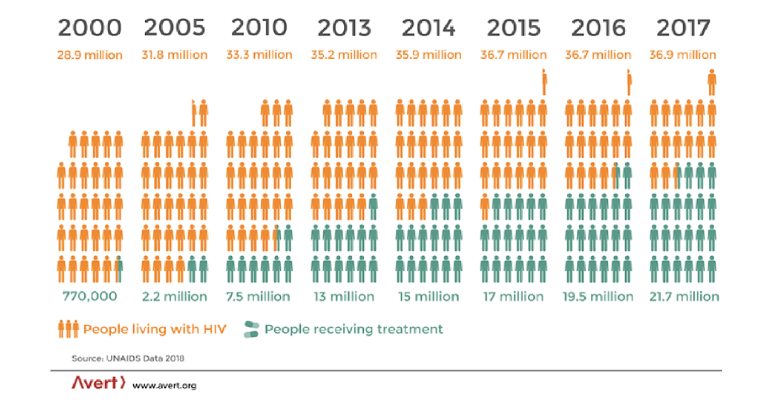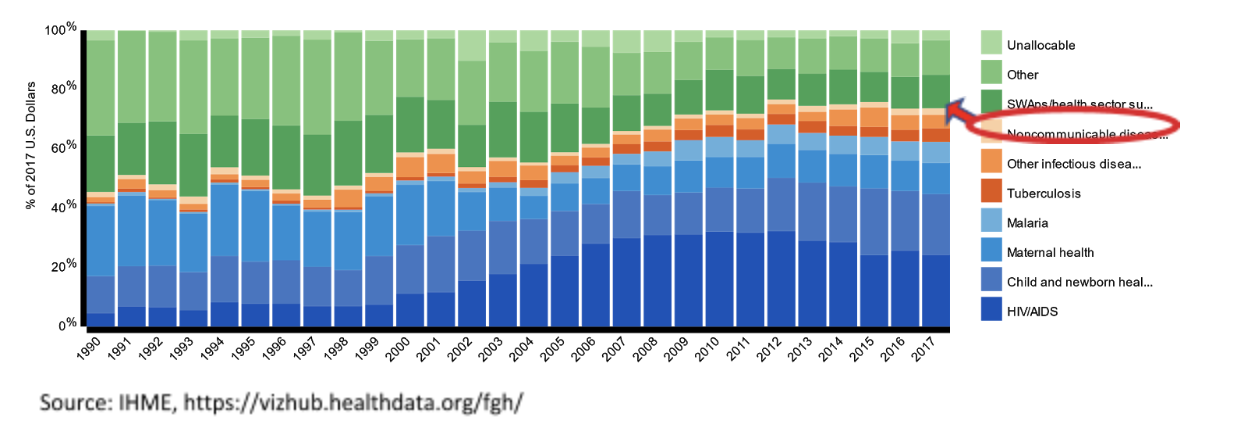Cancer:
A 21st Century Scourge Crying Out for Innovation
ASSIST’S Vision for Cancer Treatment in the Developing World
To bring about transformative cancer change, ASSIST believes the following needs to happen for the developing world:
- Place cancer care on the global agenda
- Develop therapies that do not require sophisticated medical infrastructure
- Promote oral treatments that lack toxicity and side effects
- Work to remove the fear and other stigmas of a cancer diagnosis
- Support development of an oral cancer therapy (like ART for HIV/AIDS)
Cancer remains humanity’s most enduring and devastating non-communicable disease. In the 21st century, cancer is projected to become the leading cause of death worldwide and the single most important barrier to increasing life expectancy in EVERY country. People with cancer face terrible choices in treating their disease…and the latest treatment solutions offer little to ameliorate these choices. For people in developing countries—where cancer kills 50 percent more people than AIDS, TB, and malaria COMBINED—the prospects are even worse as they have little, if any, access to safe or efficacious treatments.
Current treatments focus on eradicating the cancer, either by surgery or with highly toxic methods. Most of today’s cancer “standard of care” drugs focus either on one narrow aspect of cancer (and the cancer finds a way to go around it…) or focus on killing cancer cells—but cancer can mutate and avoid these attacks. While these treatment modalities may prolong life, for many “end of life” often lacks any “quality of life.”
Cancer by the Numbers
According to the World Health Organization (WHO) and the American Cancer Society:
- In 2018, an estimated 18 million new cancer cases and 9.6 million deaths occurred globally
- Unless something changes, by 2040 we can expect annual global new cancer case numbers to increase to 29.5 million new cases per year
- 65% of global cancer deaths occur in developing countries
Nearly 50 years have passed since President Nixon declared a “War on Cancer” in the U.S…and still cancer marches on towards becoming the leading disease killer worldwide.
Within the scope of that same half century—we not only faced the onset and explosion of the HIV/AIDS global epidemic, but also witnessed the virus’ successful treatment and containment. Twenty years of a dedicated focus by the global community and its resources brought forth and distributed an accessible anti-viral ART combination therapy, turning the tide on the dreaded epidemic and making HIV/AIDS a chronic, managed disease. Over the past three years, the number of people living with HIV has flatlined and, today, nearly 60% of those with HIV receive treatment.

So, what happened to cancer?
While major global attention and funding has been directed at HIV/AIDS, TB, and malaria, cancer—lumped into the same category along with other non-communicable diseases—has been historically ignored by development assistance for specific health funding. In fact, of the $37.4 billion global health financing provided in 2017 by world governments and agencies as well as by private philanthropy and foundations, only 2 percent of this funding went to ALL noncommunicable diseases collectively—one of which was cancer. And for nearly three decades noncommunicable/cancer funding has never exceeded 1-2 percent of the annual monies spent on development assistance for health funding.

Now, imagine if we gave cancer the same focus as was given to HIV/AIDS—what changes could the next decade bring?
ASSIST believes a bold fuel for this change is NED-170, a combination cancer therapy being developed by NED Biosystems (NED). As a public benefit corporation, NED has committed to make NED-170 available to NGOs at cost for developing world distribution upon receipt of regulatory approval. Like the HIV combination therapy does for HIV/AIDS, NED-170 aims to turn cancer into a well-managed illness with greatly extended survival and high quality-of-life, thanks to its low-toxicity and at-home delivery design.
We invite you to join us in looking at cancer treatments in a whole new way—become part of our coalition to change the future of cancer in the developing world…and beyond.
Recognizing The Power Of Collaboration
Contact us to learn more about ASSIST and our work
